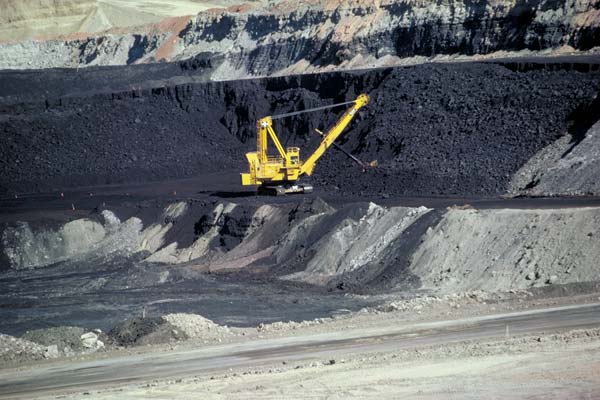Widgetized Section
Go to Admin » Appearance » Widgets » and move Gabfire Widget: Social into that MastheadOverlay zone
Feds put brakes on coal-mining leases, draw heat, praise in Colorado
Editor’s note: A version of this story first appeared in The Colorado Statesman:
The U.S. Department of the Interior on Friday announced a three-year halt to new coal-mining leases on federal lands while it reviews its royalty and leasing program, a move that drew quick condemnation from the U.S. congressman whose district includes the most mines in Colorado.
“This decision reeks of contempt for rural America and for the most vulnerable Americans who will suffer as electricity prices increase and the reliability in the grid decreases,” said Rep. Scott Tipton, R-Cortez, whose district includes the state’s entire Western Slope. “We will continue to fight to protect Americans from the president’s war on affordable energy.”
In a press release, Interior Secretary Sally Jewell said the halt in new leases and review of federal royalties, which are paid to states where coal is mined on federal lands, won’t impact existing leases, and that companies can continue to mine reserves already under lease. It’s estimated those reserves will allow current production levels on federal lands for 20 years.
At least one Western Slope politician hailed the move. Carbondale Mayor Stacey Bernot, whose father was a coal miner, praised Jewell’s decision in a prepared statement.
“Current rules for coal mining on public lands are antiquated and do not reap a fair return for taxpayers,” Bernot said. “My community, once known for coal mining, has transitioned in the last three decades away from coal. Subsidizing coal is not the answer; assisting communities in transitioning, as Carbondale was forced to do, is what is needed for western communities.”
Other Western Slope politicians say the federal government needs to take steps to facilitate the export of Colorado coal to Asian markets and stop advancing policies such as the Clean Power Plan that are putting the industry out of business.
“The coal industry is having difficulties all over the U.S. because of our policies and a whole lot of reasons,” said state Sen. Ray Scott, whose district includes some of Colorado’s coal country. “Something’s got to change at the federal level before a whole lot can change at the state level.”
Interior Secretary Jewell said she’s putting the brakes on new leases to review how coal mining on federal land, which accounts for over 40 percent of the nation’s overall coal production, fits with the administration’s more aggressive stance on climate change in President Barack Obama’s second term.
“We haven’t undertaken a comprehensive review of the program in more than 30 years, and we have an obligation to current and future generations to ensure the federal coal program delivers a fair return to American taxpayers and takes into account its impacts on climate change,” Jewell said in a press release.
R.J. Harrington of Louisville, Colorado, who’s president and CEO of Colorado-based Sustainable Action Consulting PBC and a member of Environmental Entrepreneurs (E2), said in a prepared statement that the review will boost Colorado’s growing renewable energy sector.
“The broken and outdated federal coal program was in desperate need of attention, and modernizing it will expand our economy while protecting our environment,” Harrington said. “Now’s the time to quickly transition from dirty to clean, renewable energy sources.”
Friday’s announcement follows the news earlier this week that Arch Coal, one of the nation’s largest mining companies, is filing for Chapter 11 bankruptcy protection. The company is seeking permission to expand its West Elk Coal Mine on U.S. Forest Service land near Somerset, Colorado, on the state’s Western Slope.
Colorado Mining Association President Stuart Sanderson said there will be no immediate impact to operations at West Elk, which is the state’s most productive mine with more than 5 million tons mined in 2015, but he added the expansion is still critical.
“The issue of immediate concern to the future of mining at West Elk and other North Fork coal mines is not that the mine’s parent company has to seek the protections afforded by Chapter 11,” Sanderson said, “it is in securing access to additional coal reserves to facilitate continued operations to meet market demand.”
But Conservation Colorado Executive Director Pete Maysmith released a statement on Friday calling for Gov. John Hickenlooper and the Forest Service to put a stop to the expansion plan.
“The West Elk Mine project would create a massive new source of methane vented directly into our atmosphere, wiping out at least half of the methane reductions the state stands to achieve through the [new] oil and gas rule [curbing methane emissions],” Maysmith said. “We believe approving a coal mine expansion for a bankrupt company in a roadless forest is misguided.”
David O. Williams
Latest posts by David O. Williams (see all)
- In governor’s primary race, Bennet, Weiser sparring over who is tougher on Trump - July 15, 2025
- The O. Zone: Battle for public lands just now heating up, much like our atmosphere - July 14, 2025
- Immigrant rights groups push Colorado AG Weiser for probes into violations of ICE collaboration law - July 11, 2025



